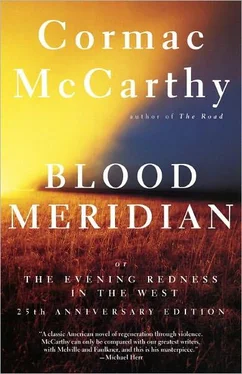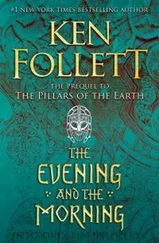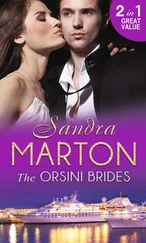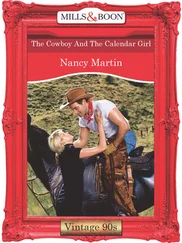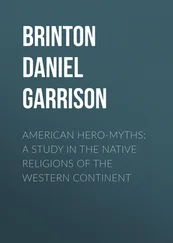On the fifth of December they rode out north in the cold darkness before daybreak carrying with them a contract signed by the governor of the state of Sonora for the furnishing of Apache scalps. The streets were silent and empty. Carroll and Sanford had defected from the company and with them now rode a boy named Sloat who had been left sick to die in this place by one of the gold trains bound for the coast weeks earlier. When Glanton asked him if he were kin to the commodore of that name the boy spat quietly and said No, nor him to me. He rode near the head of the column and he must have counted himself well out of that place yet if he gave thanks to any god at all it was ill timed for the country was not done with him.
They rode north onto the broad Sonoran desert and in that cauterized waste they wandered aimlessly for weeks pursuing rumor and shadow. A few small scattered bands of Chiricahua raiders supposedly seen by herdsmen on some squalid and desolate ranch. A few peons waylaid and slain. Two weeks out they massacred a pueblo on the Nacozari River and two days later as they rode toward Ures with the scalps they encountered a party of armed Sonoran cavalry on the plains west of Baviácora under General Elias. A running fight ensued in which three of Glanton’s party were killed and another seven wounded, four of whom could not ride.
That night they could see the fires of the army less than ten miles to the south. They sat out the night in darkness and the wounded called for water and in the cold stillness before dawn the fires out there were still burning. At sunrise the Delawares rode into the camp and sat on the ground with Glanton and Brown and the judge. In the eastern light the fires on the plain faded like an evil dream and the country lay bare and sparkling in the pure air. Elias was moving upon them out there with over five hundred troops.
They rose and began to saddle the horses. Glanton fetched down a quiver made from ocelot skin and counted out the arrows in it so that there was one for each man and he tore a piece of red flannel into strips and tied these about the footings of four of the shafts and then replaced the counted arrows into the quiver.
He sat on the ground with the quiver upright between his knees while the company filed past. When the kid selected among the shafts to draw one he saw the judge watching him and he paused. He looked at Glanton. He let go the arrow he’d chosen and sorted out another and drew that one. It carried the red tassel. He looked at the judge again and the judge was not watching and he moved on and took his place with Tate and Webster. They were joined finally by a man named Harlan from Texas who had drawn the last arrow and the four of them stood together while the rest saddled their horses and led them out.
Of the wounded men two were Delawares and one a Mexican. The fourth was Dick Shelby and he alone sat watching the preparations for departure. The Delawares remaining in the company conferred among themselves and one of them approached the four Americans and studied them each in turn. He walked past them and turned and came back and took the arrow from Webster. Webster looked at Glanton where he stood with his horse. Then the Delaware took Harlan’s arrow. Glanton turned and with his forehead against the ribs of his horse he tightened the girthstraps and then mounted up. He adjusted his hat. No one spoke. Harlan and Webster went to get their animals. Glanton sat his horse while the company filed past and then he turned and followed them out onto the plain.
The Delaware had gone for his horse and he brought it up still hobbled through the wallowed places in the sand where the men had slept. Of the wounded indians one was silent, breathing heavily with his eyes closed. The other was chanting rhythmically. The Delaware let drop the reins and took down his warclub from his bag and stepped astraddle of the man and swung the club and crushed his skull with a single blow. The man humped up in a little shuddering spasm and then lay still. The other was dispatched in the same way and then the Delaware raised the horse’s leg and undid the hobble and slid it clear and rose and put the hobble and the club in the bag and mounted up and turned the horse. He looked at the two men standing there. His face and chest were freckled with blood. He touched up the horse with his heels and rode out.
Tate squatted in the sand, his hands dangling in front of him. He turned and looked at the kid.
Who gets the Mexican? he said.
The kid didnt answer. They looked at Shelby. He was watching them.
Tate had a clutch of small pebbles in his hand and he let them drop one by one into the sand. He looked at the kid.
Go on if you want to, the kid said.
He looked at the Delawares dead in their blankets. You might not do it, he said.
That aint your worry.
Glanton might come back.
He might.
Tate looked over to where the Mexican was lying and he looked at the kid again. I’m still held to it, he said.
The kid didnt answer.
You know what they’ll do to them?
The kid spat. I can guess, he said.
No you caint.
I said you could go. You do what you want.
Tate rose and looked to the south but the desert there lay in all its clarity uninhabited by any approaching armies. He shrugged up his shoulders in the cold. Injins, he said. It dont mean nothin to them. He crossed the campground and brought his horse around and led it up and mounted it. He looked at the Mexican, wheezing softly, a pink froth on his lips. He looked at the kid and then he nudged the pony up through the scraggly acacia and was gone.
The kid sat in the sand and stared off to the south. The Mexican was shot through the lungs and would die anyway but Shelby had had his hip shattered by a ball and he was clear in his head. He lay watching the kid. He was from a prominent Kentucky family and had attended Transylvania College and like many another young man of his class he’d gone west because of a woman. He watched the kid and he watched the enormous sun where it sat boiling on the edge of the desert. Any roadagent or gambler would have known that the first to speak would lose but Shelby had already lost it all.
Why dont you just get on with it? he said.
The kid looked at him.
If I had a gun I’d shoot you, Shelby said.
The kid didnt answer.
You know that, dont you?
You aint got a gun, the kid said.
He looked to the south again. Something moving, perhaps the first lines of heat. No dust in the morning so early. When he looked at Shelby again Shelby was crying.
You wont thank me if I let you off, he said.
Do it then you son of a bitch.
The kid sat. A light wind was blowing out of the north and some doves had begun to call in the thicket of greasewood behind them.
If you want me just to leave you I will.
Shelby didnt answer.
He pushed a furrow in the sand with the heel of his boot. You’ll have to say.
Will you leave me a gun?
You know I caint leave you no gun.
You’re no better than him. Are you?
The kid didnt answer.
What if he comes back.
Glanton.
Yes.
What if he does.
He’ll kill me.
You wont be out nothin.
You son of a bitch.
The kid rose.
Will you hide me?
Hide you?
Yes.
The kid spat. You caint hide. Where you goin to hide at? Will he come back?
I dont know.
This is a terrible place to die in.
Where’s a good one?
Shelby wiped his eyes with the back of his wrist. Can you see them? he said.
Not yet.
Will you pull me up under that bush?
The kid turned and looked at him. He looked off downcountry again and then he crossed the basin and squatted behind Shelby and took him up under the arms and raised him. Shelby’s head rolled back and he looked up and then he snatched at the butt of the pistol stuck in the kid’s belt. The kid seized his arm. He let him down and stepped away and turned him loose. When he returned through the basin leading the horse the man was crying again. He took the pistol from his belt and jammed it among his belongings lashed to the cantle and took his canteen down and went to him.
Читать дальше
